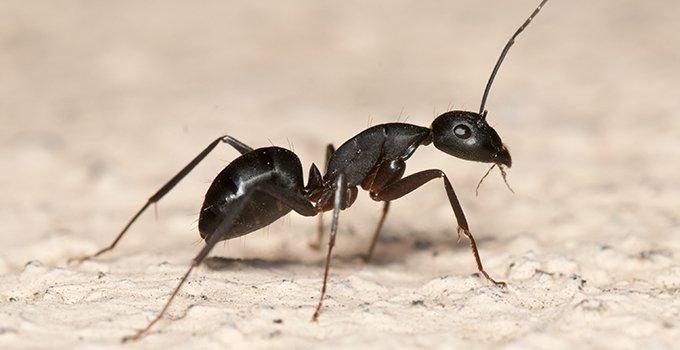What Lynchburg Property Owners Should Know About Carpenter Ants
8/14/2020

We have a variety of ant species in Lynchburg. When ants start creating mounds throughout your lawn or near your home, it can be difficult to figure out what species you're dealing with. But it is important that you recognize the ant species that are known as carpenter ants because carpenter ants can do quite a bit of damage to your property if you don't take measures to stop them. This type of ant tunnels inside the wood. Today, we're going to talk about how you can recognize carpenter ants and what you need to know to protect your property from damage.
What Carpenter Ants Look Like
In Lynchburg, carpenter ants are entirely black or dark reddish color with a black abdomen. The abdomen is the hind end of the ant. These are the largest ants you'll find around your Lynchburg home. A worker ant is likely to be ⅝ of an inch long, but some species have workers that are smaller. If you see a black ant between ⅜ and ½ inches long, you're probably looking at a carpenter ant, but use the identification tips below to make sure.
Four Ways Carpenter Ants Give Themselves Away
-
Carpenter ants can be found near trees that are dying, logs on the ground, piles of sticks, leaf litter, stumps, and other decaying wood.
-
Carpenter ants can live in the ground and create dirt mounds as many other ants do, but they prefer to do it near a wood source.
-
Carpenter ants aren't likely to create a mound in the middle of your yard. You're most likely going to find them in your landscaping, near trees, or near your home.
-
Carpenter ants produce frass as they excavate tunnels in wood. This material is a mixture of droppings and sawdust.
Three Things To Keep In Mind About Lynchburg Carpenter Ants
-
These ants are usually found around homes that have lots of trees and bushes.
-
These ants gravitate to areas where leaves are piled or organic matter has been piled, such as grass clippings, acorns you've raked up, and sticks you've collected from your yard.
-
These ants are drawn to homes that have ground saturation near the foundation. One common way ground saturation occurs is when gutters get clogged. It can be a burden to get up there and clean those gutters, but we highly recommend it.
What You Should Know Most About Carpenter Ants
Carpenter ants prefer to tunnel through softwood that has been damaged by moisture. If you have rotting wood on your home, these ants will target it. But they'll also get into brick structures. You should not think that your home is safe simply because it is made of brick. These ants will find gaps and cracks to get inside the walls. Once inside, they can tunnel through soft, rotted wood, but also sound timbers within your walls.
How To Respond To Carpenter Ants
It is important to recognize that carpenter ants pose a systemic threat that must be appropriately addressed to protect your investment. If you don't deal with the root problem, you can have these ants continuing to attack your home in secret places that are difficult to see. Once inside, they can damage your home without giving you any signs that they've gotten in. Don't risk damage to your home, contact a licensed pest control professional for carpenter ant treatments. We hope you'll choose All Pest Control. We offer the highest level of pest control and professionalism. At the first sign of a carpenter ant infestation in Lynchburg, reach out to us. We're here to assist you with all your pest control needs.








